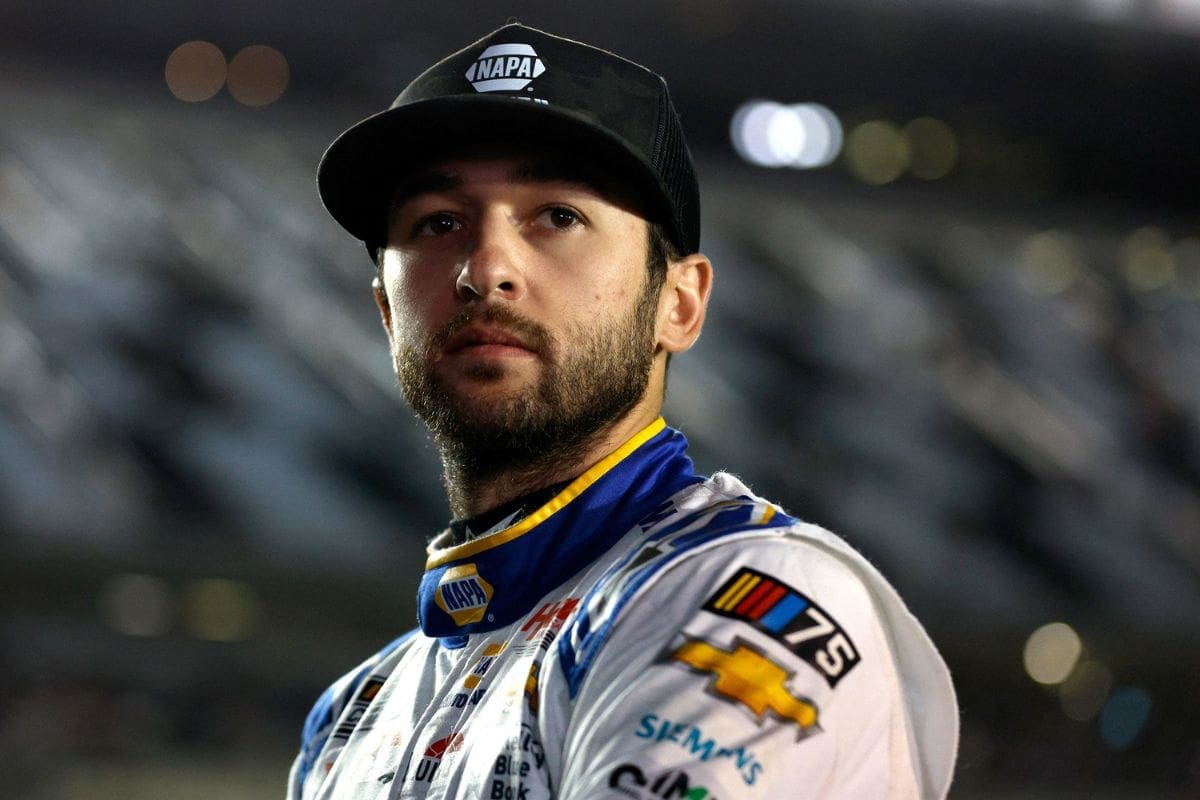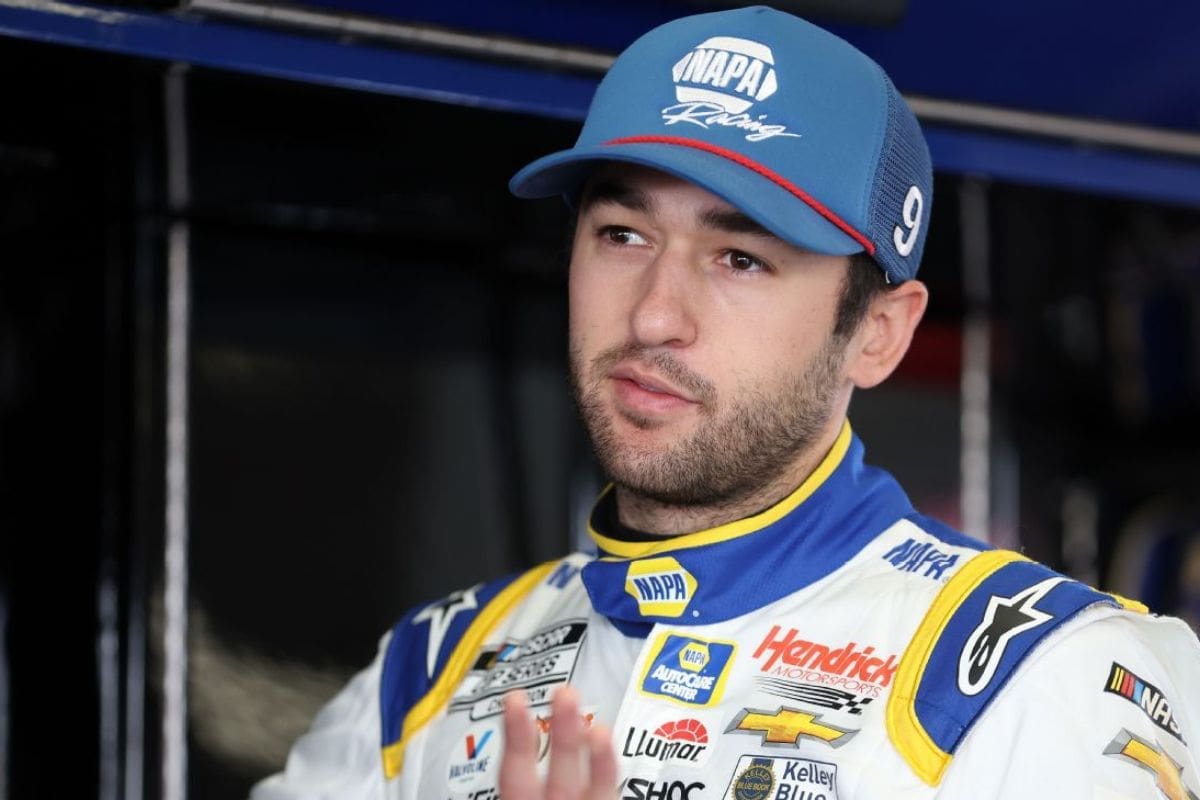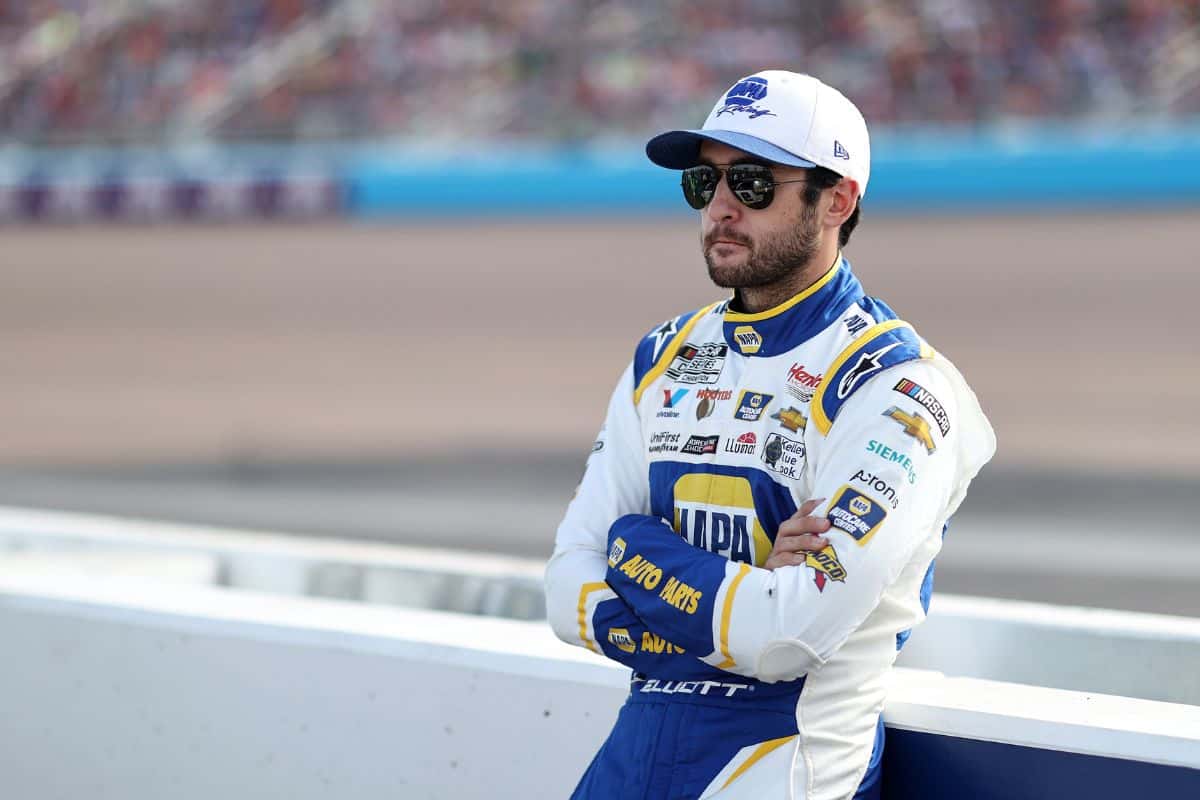Chase Elliott Discusses Overtime Rule Adjustments: Chase Elliott‘s recent remarks after the Nashville Superspeedway race have reignited debates about NASCAR’s overtime regulations, especially regarding the race-concluding caution flags that many claim dampen competitive excitement. Elliott’s frustration is evident as he highlights the need for rule modifications that would enable races to end with the same competitive fervor with which they start. This feeling mirrors Elliott’s individual racing ideology and prompts a wider review of the equilibrium between safety measures and the fairness of competition. With the championship race intensifying, these rule discussions could greatly influence the tactics and results in the upcoming season.
Key Highlights
- Chase Elliott criticized race endings under caution, arguing they detract from competitive finishes.
- Elliott emphasized the need for dynamic and exciting race conclusions to enhance the sport’s appeal.
- He suggested that caution finishes undermine strategic planning and drivers’ skill execution.
- Elliott’s experience at Nashville highlighted the impact of multiple restarts on race outcomes.
- The debate over overtime rules centers on balancing drivers’ competition with fans’ expectations.
Chase Elliott’s Displeasure with Caution Endings
Expressing his dissatisfaction, Chase Elliott criticized the practice of ending NASCAR races under caution, highlighting the impact on both drivers and fans. Elliott’s disapproval was particularly pronounced following the Ally 400 at Nashville Superspeedway, where a record-breaking five overtime restarts were necessary to determine the victor. He emphasized that the essence of racing lies in its competitive spirit and dynamic finale, which is diluted when a race concludes under caution periods.
“If I was a fan and I watched the race end under caution, I’d be pissed.” – Elliott
“If I was a fan and I watched the race end under caution, I’d be pissed”
Chase Elliott on if the overtime rules need adjusting after Nashville.
He also spoke about returning to Chicago and how his friends view and compare it to other races.
📹 @stephen_stumpf pic.twitter.com/elsfaJr8tw
— Frontstretch (@Frontstretch) July 6, 2024
Elliott’s perspective is rooted in a genuine concern for the integrity of the sport. From a driver’s standpoint, finishing under caution can be deeply unsatisfying; it negates the opportunity for drivers to fully capitalize on their strategic planning and skill, particularly in the pivotal final laps. Drivers like Elliott invest considerable effort and resources to position themselves favorably for the finish, and a caution conclusion can undermine these efforts, leaving a sense of unfulfilled potential.
For fans, the visual and emotional peak of a race is often in the final sprint to the checkered flag. A caution finish deflates this anticipation, replacing what could be an electrifying end with a processional and anti-climactic display. This can erode the spectator experience, diminishing the overall attraction of the event and potentially impacting fan engagement and loyalty.
Debate Over Overtime Rules
The ongoing debate over NASCAR’s extra time rules has heightened following the unprecedented five overtime restarts at Nashville Superspeedway, prompting varying viewpoints within the racing community on the best way to concluding races. This contentious issue has led to a division among stakeholders, with some advocating for a definitive cap on extra time attempts, while others support a more flexible approach.
Analyzing the perspectives reveals a spectrum of opinions. Advocates for a strict limit argue that it ensures predictability and reduces the potential for chaotic, prolonged races. On the other hand, proponents of unlimited green-white-checkered finishes, like Dale Earnhardt Jr., believe that it maintains the integrity of racing by ensuring that races end under green flag conditions whenever possible.
| Perspective | Justification |
|---|---|
| Strict Limit Advocates | Ensures predictability and reduces race duration |
| Unlimited Restarts | Maintains integrity by avoiding race outcomes under caution |
| No Overtime Supporters | Simplifies rules and avoids prolonged race controversies |
Denny Hamlin’s stance, which exhibits openness to either unlimited restarts or abolishing extra time entirely, highlights the complexity of the issue. His viewpoint reflects a desire for clarity and consistency, regardless of the direction NASCAR chooses. Hamlin’s perspective also emphasizes the need for a balanced approach that considers both the drivers’ and fans’ experiences.
Impact on Chase Elliott’s Race
Chase Elliott’s race at Nashville Superspeedway was heavily influenced by the series of extra restarts, which initially allowed him to gain significant track position but ultimately led to his downfall due to fuel mismanagement. The chaotic nature of multiple additional restarts provided Elliott with an opportunity to advance from his 12th place standing, demonstrating his skill at capitalizing on turbulent race conditions. However, the prolonged duration of the extra sequences inadvertently disrupted his race strategy, particularly his fuel calculations.
Elliott’s pit crew had to make rapid adjustments during the intense moments of overtime. This complexity in decision-making under duress highlighted the challenges teams face in balancing aggressive racing tactics with the practicalities of fuel management. Despite his initial surge, Elliott’s car ran out of fuel, forcing an unscheduled pit stop. This critical misstep relegated him to an 18th place finish.
In contrast, Team Penske‘s Joey Logano and Ryan Blaney exemplified a more fortunate outcome from the same additional scenarios. Logano, leveraging strategic pit stops and efficient fuel management, secured the race win and solidified his playoff berth. Blaney similarly benefited, further accentuating the significant risks and variable outcomes extra restarts can impose.
The dichotomy between Elliott’s misfortune and Logano’s success highlights the thin margins that define NASCAR races, particularly under the extra rules. Elliott’s experience at Nashville underscores the critical importance of adaptability and precision in fuel strategy, which can dramatically alter race outcomes in the final laps. This incident serves as a profound case study in the broader discourse on the efficacy and impacts of extra regulations.
Championship Implications and Standings
Navigating the complexities of the NASCAR Cup Series standings, Kyle Larson’s 20-point lead over Chase Elliott showcases the significant influence of consistent performance and strategic expertise amidst the unpredictability of overtime restarts. Larson’s eighth-place finish at the Ally 400, contrasted with Elliott’s struggles due to a challenging fuel strategy, emphasizes the nuanced battles that define the championship race.
The implications of this lead are manifold. Larson’s ability to navigate the intricacies of race strategy, particularly during the high-pressure scenarios of overtime restarts, has strengthened his position. Elliott, on the other hand, must not only close the points gap but also refine his approach to these decisive moments. The table below provides a snapshot of the current top five standings.
Examining these standings reveals the razor-thin margins separating the top contenders, where each race can greatly alter the championship trajectory. Larson’s consistent top-ten finishes have been crucial, whereas Elliott’s occasional setbacks, such as the one in Nashville, highlight the fine line between victory and adversity in NASCAR.
Moreover, the strategic adjustments and decisions made during overtime restarts often serve as a microcosm of the season-long battle, where precision, timing, and adaptation are essential. As the season progresses, the championship implications of each race will intensify, making every decision and every point earned significant in the quest for the title.
News in Brief: Chase Elliott Discusses Overtime Rule Adjustments
Chase Elliott’s critique of caution endings highlights a broader debate within the NASCAR community regarding overtime rules and their impact on race outcomes. The incident at Nashville Superspeedway emphasizes the importance of strategic planning and adaptability.
Elliott’s 18th place finish due to fuel mismanagement further accentuates the critical nature of decision-making in the championship standings, where he remains 20 points behind Kyle Larson. This ongoing discussion reflects differing perspectives on how to best guarantee competitive and dynamic race outcomes.
ALSO READ: Chase Elliott’s Electric NASCAR Comments Are Turning Head




